If we look into the hadith there are many Sunnahs of Prophet Muhammad (ﷺ) regarding how to correctly offer prayer. These range to cover both the actions and words of prayer. There are many different dua’s which can be recited during salat. There’s is no one single exact way to pray.
There are however obligatory acts that must be followed, if missed intentionally the prayer is no longer valid. Here’s a list of these pillars:
- Standing (if one is capable of doing so) during fard prayers.
- Reciting The Opening Takbir (Allahu Akbar).
- Recitation of Surah Fatiha
- The Ruku (bowing) with hands on knee and back and head parallel with the ground.
- Rising from bowing.
- Standing up straight.
- Prostarting (sujood) with the forehead, nose, palms, knees and toes all making firm contact with the ground.
- Rising from sujood.
- To sit between the two prostrations. The Sunnah to sit muftarishan, we’ve likely seen it at our local masjid, sitting on the left foot while the right foot is upright with the toes.
- Being at ease in each of these physical pillars
- The final tashahhud (reciting attahiyat)
- Saying the two salams. “asalaamu alaykum wa rahmat-Allah which means “Peace be upon you and the mercy of Allah.”
In this post we will cover number 11 the reciting tashahhud (attahiyat lillahi wa salawatu…)
Click here to subscribe to our YouTube Channel
Attahiyat lillahi wa salawatu in arabic
Here is the Attahiyat in Arabic text,
التَّحِيَّاتُ لِلَّهِ وَالصَّلَوَاتُ وَالطَّيِّبَاتُ، السَّلاَمُ عَلَيْكَ أَيُّهَا النَّبِيُّ وَرَحْمَةُ اللَّهِ وَبَرَكَاتُهُ، السَّلاَمُ عَلَيْنَا وَعَلَى عِبَادِ اللَّهِ الصَّالِحِينَ، أَشْهَدُ أَنْ لاَ إِلَهَ إِلاَّ اللَّهُ وَأَشْهَدُ أَنَّ مُحَمَّدًا عَبْدُهُ وَرَسُولُهُ
Transliteration:
At-tahiyyatu Lillahi wa-salawatu wa’t-tayyibat, as-salamu ‘alayka ayyuha’n-Nabiyyu wa rahmat-Allahi wa barakatuhu. As-salamu ‘alayna wa ‘alaa ‘ibad-Illah is-saliheen. ashhadu alla ilaha illallah wa ashhadu anna muhammadan ‘abduhu wa rasuluhu
Attahiyat in english meaning
The translation for the wording of the attahiyat above is given:
“All the best compliments and the prayers and the good things are for Allah. Peace and Allah’s Mercy and Blessings be on you, O Prophet! Peace be on us and on the pious slaves of Allah, I testify that none has the right to be worshipped but Allah, and I also testify that Muhammad is Allah’s slave and His Apostle.”
Reference: Sahih al-Bukhari 6265
In-book reference: Book 79, Hadith 39
USC-MSA web (English) reference: Vol. 8, Book 74, Hadith 281
Now, this is just one version of the Attahiyat, in a separate narration in Sunan Abu Dawud, Sahih (Al-Albani) hadith 971 it is recited as follows:
Transliteration: At-tahiyyaatu Lillaahi, az-zaakiyaatu Lillaahi, al-tayyibaatu Lillaahi, al-salawaatu Lillaahi. As-salaamu ‘alayka ayyuha’n-Nabiyyu wa rahmat-Allaahi wa barakaatuhu. As-salaamu ‘alayna wa ‘alaa ‘ibaad-Illaah is-saaliheen. Ash-hadu an laa ilaaha ill-Allaah wa ash-hadu anna Muhammadan ‘abduhu wa rasooluhu
Translation: All compliments are due to Allaah, all pure things are due to Allaah, all pure words are due to Allaah, all prayers are due to Allaah. Peace be upon you, O Prophet, and the mercy of Allaah and His blessings. Peace be upon us, and on the righteous slaves of Allaah. I bear witness that none has the right to be worshipped except Allaah, and I bear witness that Muhammad is His slave and Messenger.
Which of the two versions of should you recite?
Since the wordings are different and the final tashadud can only be recited once which version should you recite, bukhari or abu dawood?
The answer is to learn attahiyat of both versions and alternate between the two. Maybe for fajr, dhur, maghrib one day you say bukhari version of attahiyat and for asr and isha you read abu dawood. This would be up completely up to you.
In learning both, you will have completed all the Sunnah of Prophet Muhammad (saws) when it comes to tashadud. Why limit yourself with only reciting one way.
Now, if it is difficult for you, then do what your able to do. Stick with whichever version you were taught when you learned to pray salat, there is no sin by saying one over the other or not saying the other at all.
Hadith on The Tashah-hud In The Prayer
Abdullah (b. Mas`ud) said:
While observing prayer behind the Messenger of Allah (ﷺ) we used to recite: Peace be upon Allah, peace be upon so and so. One day the Messenger of Allah (ﷺ) said to us: Verily Allah is Himself Peace. When any one of you sits during the prayer, he should say: All services rendered by words, by acts of worship, and all good things are due to Allah. Peace be upon you, O Prophet, and Allah’s mercy and blessings. Peace be upon us and upon Allah’s upright servants, for when he says this it reaches every upright servant in the heavens and the earth. (And say further): I testify that there is no god but Allah and I testify that Muhammad is His servant and Messenger. Then he may choose any supplication which pleases him and offer it.
Reference: Sahih Muslim 402 a
In-book reference : Book 4, Hadith 59
USC-MSA web (English) reference : Book 4, Hadith 793
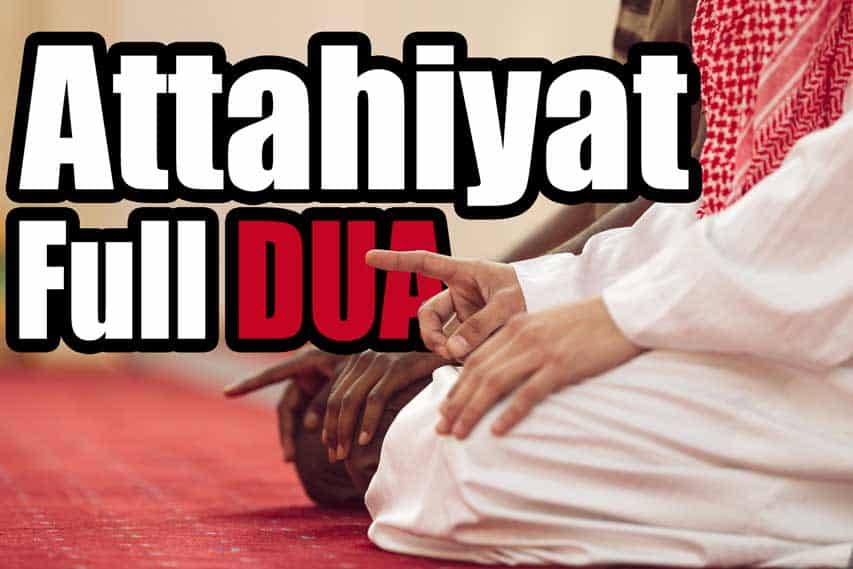
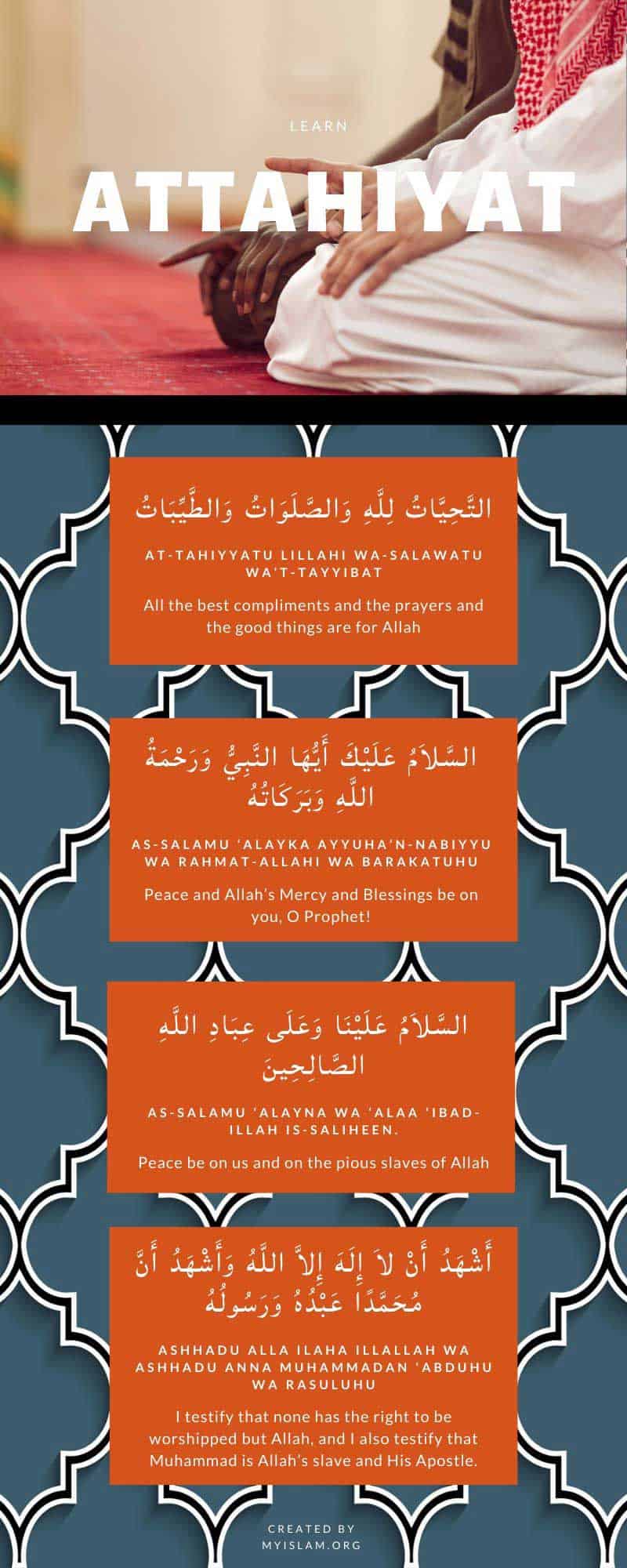
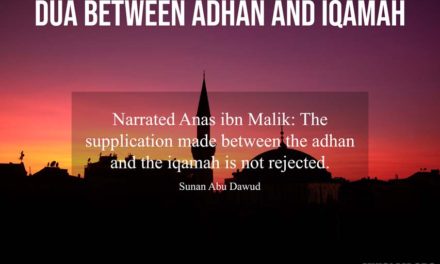
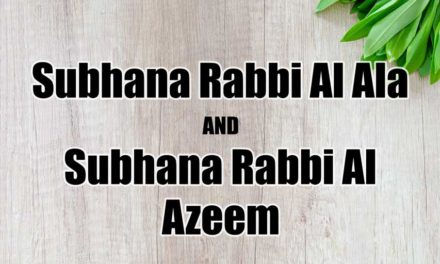
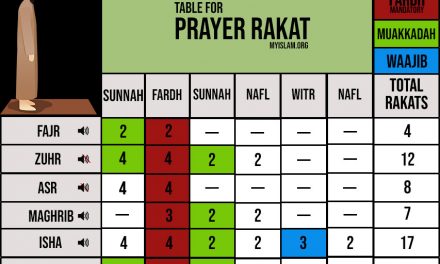
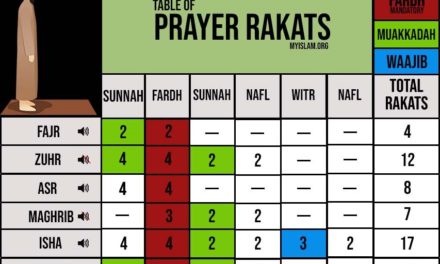
Salam alaycom,
I’am french but it’s very good and clear, i like the images to study thank you
Really am happy that you found it useful. Your comment was very encouraging to read. Jazakallah.
Masha Allah, thanks for teaching about Islam.
Mashallah really interesting
May Allah reward you countlessly
Allahuma ameen
Masha Allah may Almighty Allah reward you
Masha allah
Masha Allah jaxakhallahu bikhair fidunya Wal akirat
MashaAllah for the translation in such detail. May Allah reward you for doing this.
Al Hamdulillah!! Useful informations !! May allah accept our Prayers!
Good
Masha Allah jazakallahu khairat
Masha Allah
Assalamualaikum Warahmatullahi Wabarakatuh ???????? what a clear understanding of attahiyat, it gave me so understanding Alhamdulillah ???? Jazak Allah Khiar for sharing this beautiful information. May Allah bless you abundantly ????
Very helpful thanks
I prays in my language all time is it acceptable
Thank you, may Allah have blessings on you and may he reward you for illustrating for me his ways.
Thank you very much for this rewarding website! May Allah bless you for helping out.
Jazakallahu khair
MashaAllah
glad to learn from here, Jazakumlau kayrah.
Jazakumullahi khaira
ALHAMDULILLAH MASHA ALLAH.
I must CONFESS that it’s very, very HELPFUL
JAZAKUMOOLLAHI KHAIR!
Alhamdu lillah Masha Allah
MashaAllah for the translation in such detail. May Allah reward you for doing this.
Masha Allah for the translation in such detail. May Allah reward you for doing this.
Alhamdullillah Jazakumullahu Khair
This really was of huge use for me in fact it serve as correction in some part May Allah continue to reward you for sharing pages about islam
Assala mu alaikum warahmatullah, thank you for teaching me the importance of salah am really happy may Allah reward you the blessings
Masha Allah the more to you come for knowledge the higher you growing in knowing the unknown
Kk thanks barakalaufikhum